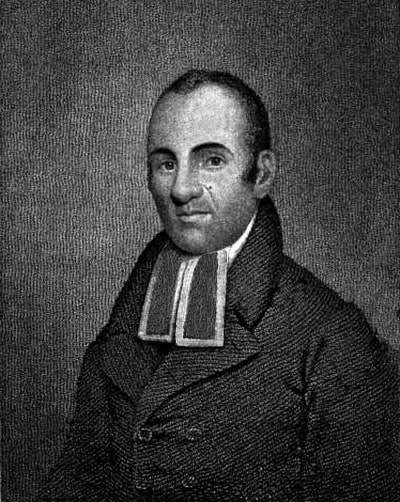Spotlight on America: Lemuel Haynes - First black man to receive a degree of higher education in America

July 18th marks the anniversary of the birth of Lemuel Haynes in 1753. Most Americans probably don’t know who this man was, but his is a story definitely worth noting!
Lemuel Haynes was a black American, abandoned at five months old by his parents and hired as an indentured servant. During his years of service, he was treated well and given the opportunity to attend school — a rare experience for blacks in that day. Haynes showed a talent for preaching from a young age and was frequently called on to give sermons and to proofread the sermons of others.
When his term of indenture ended, he enlisted as a Minuteman in the American War for Independence and participated in the siege of Boston and the expedition against Fort Ticonderoga. Decades later, while giving a sermon in his church celebrating George Washington’s birthday, he recounted his own service:
Perhaps it is not ostentatious [bragging] in the speaker to observe that in early life he devoted all for the sake of freedom and independence, and endured frequent campaigns in their defense, and has never viewed the sacrifice too great.
It was in 1785 that he became an ordained minister. During his decades of service as a pastor, as a black American he led churches that were all-white and some that were mixed (whites and blacks worshiping together — a circumstance many are unaware existed in America). He was a remarkable pastor and leader, and his churches experienced revival and growth — evidenced by an 1803 letter he penned:
Not a day nor night in a week but people would crowd to meetings. The great inquiry among the youth and others was, “What shall we do to be saved?” Children of eleven and twelve years of age seemed to be more engaged about religion than they were before about their play. The minds of the people in general were attentive. My house has been often thronged with people who desired to discourse about religion…Thus it has pleased the Lord to do wonders among us, to the praise of His glorious grace.
In 1804, Lemuel received an honorary Masters degree from Middlebury College — the first black man to receive a degree of higher education in America. (One of the amazing items in WallBuilders’ collection is a Bible handbook signed by Lemuel Haynes.)
Lemuel Haynes died in 1833, leaving behind a legacy of sacrificial service for both God and country. This American hero deserves to be remembered today!
Photo and Link: Lemuel Haynes - WallBuilders




